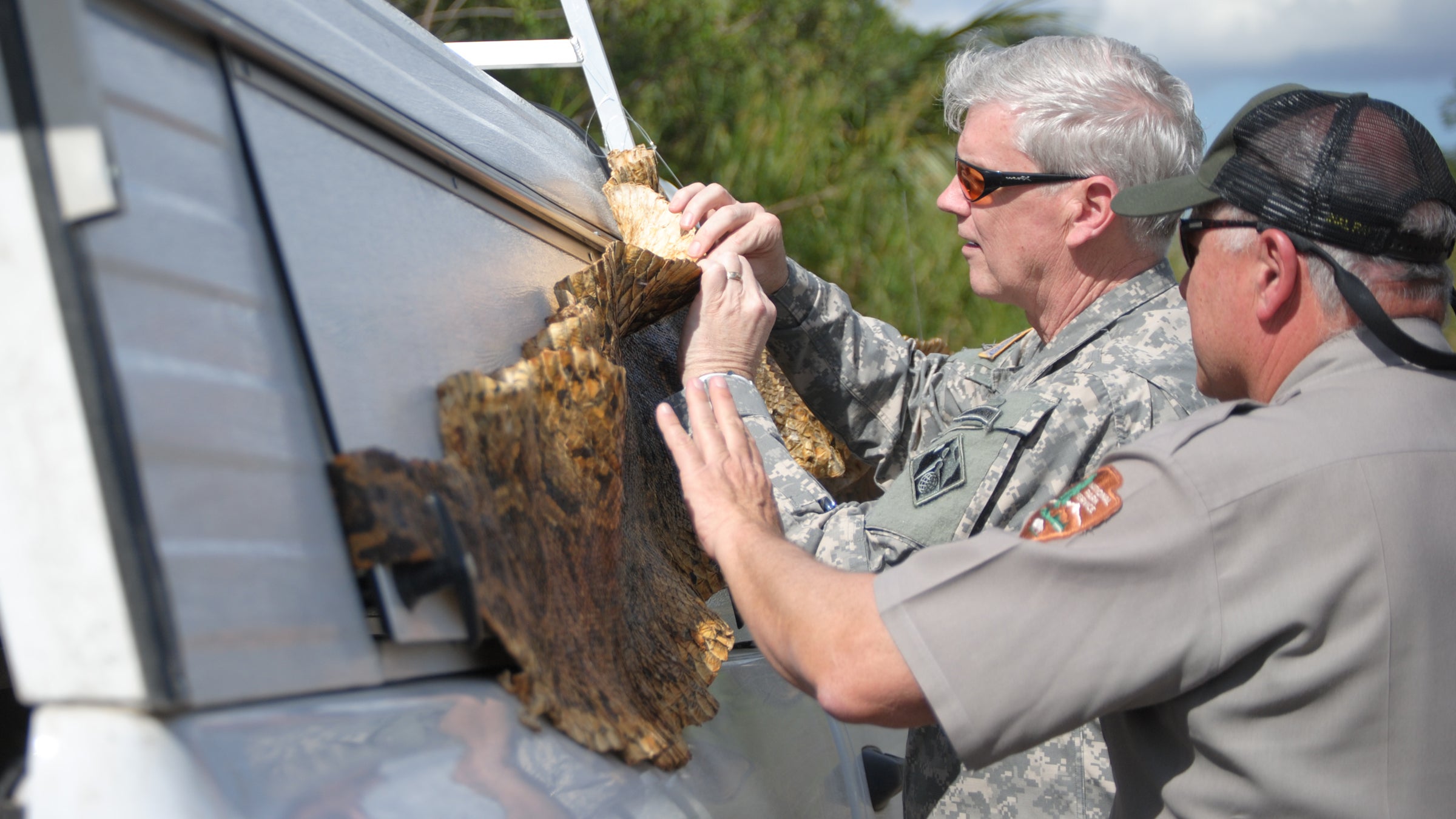The Florida Fish and Wildlife Conservation Commission has begun offering formal training for volunteers who want to learn how to capture Burmese pythons, an invasive species that has taken a heavy toll on the local ecosystem, .
Since the 1970s, Florida has been known for its enthusiastic collectors of exotic pets, some of whom have allowed domestic animals to be released in the wild. Since then, Burmese pythons and other nonnative reptiles have been linked to a 90 percent reduction in local small-mammal populations, according to a study published in .
“The hope of removing them is pretty slim,” Jenny Novak, a Florida Fish and Wildlife Conservation Commission biologist, told Reuters. “We’re in management mode now.”
Civilians who wish to help the state by bagging the reptiles can apply for permit vouchers to hunt for them on FWC-owned property. First, however, they must spend an hour in a classroom with someone like Novak, a qualified instructor who lectures volunteers on how to identify invasive and native snakes. Students are then taught to pin a snake’s head to the ground and slide it into a bag, when is then sealed with electrical tape for safe carrying. Civilians who catch an invasive animal are asked to turn it over to wildlife officials to be euthanized or kept for research purposes.
As �����ԹϺ��� wrote in 2013, Florida’s search for help in wrangling species like the Burmese python can attract its fair share of unusual characters. Not all experts agree that the general public should be allowed to hunt for nonvenomous pythons, which seize prey with their teeth and kill by constricting their bodies.
“This is ridiculous,” Kenneth Krysko, a senior herpetologist at the University of Florida, told Reuters. “You can’t have Joe Schmo grabbing these snakes.”


